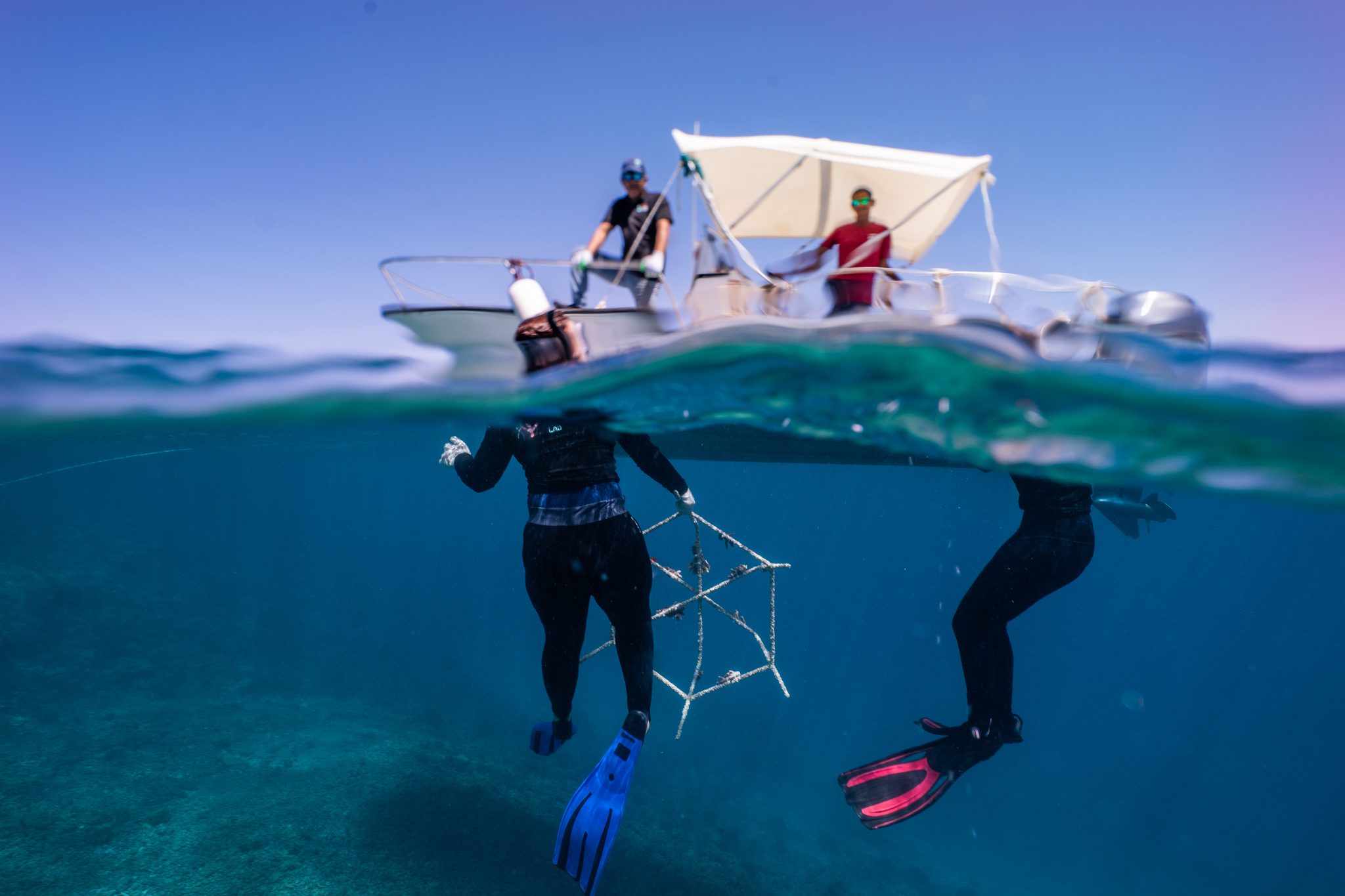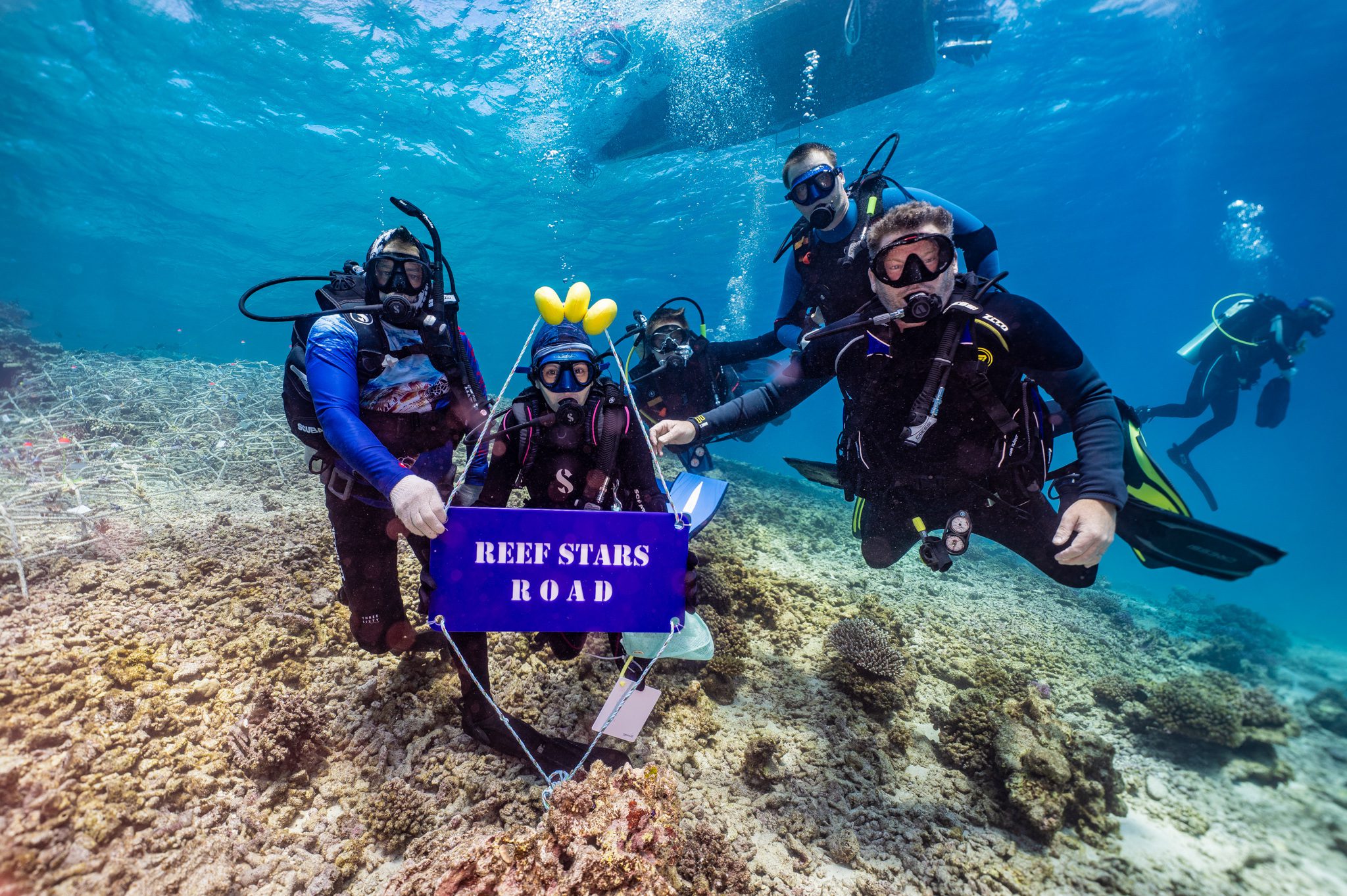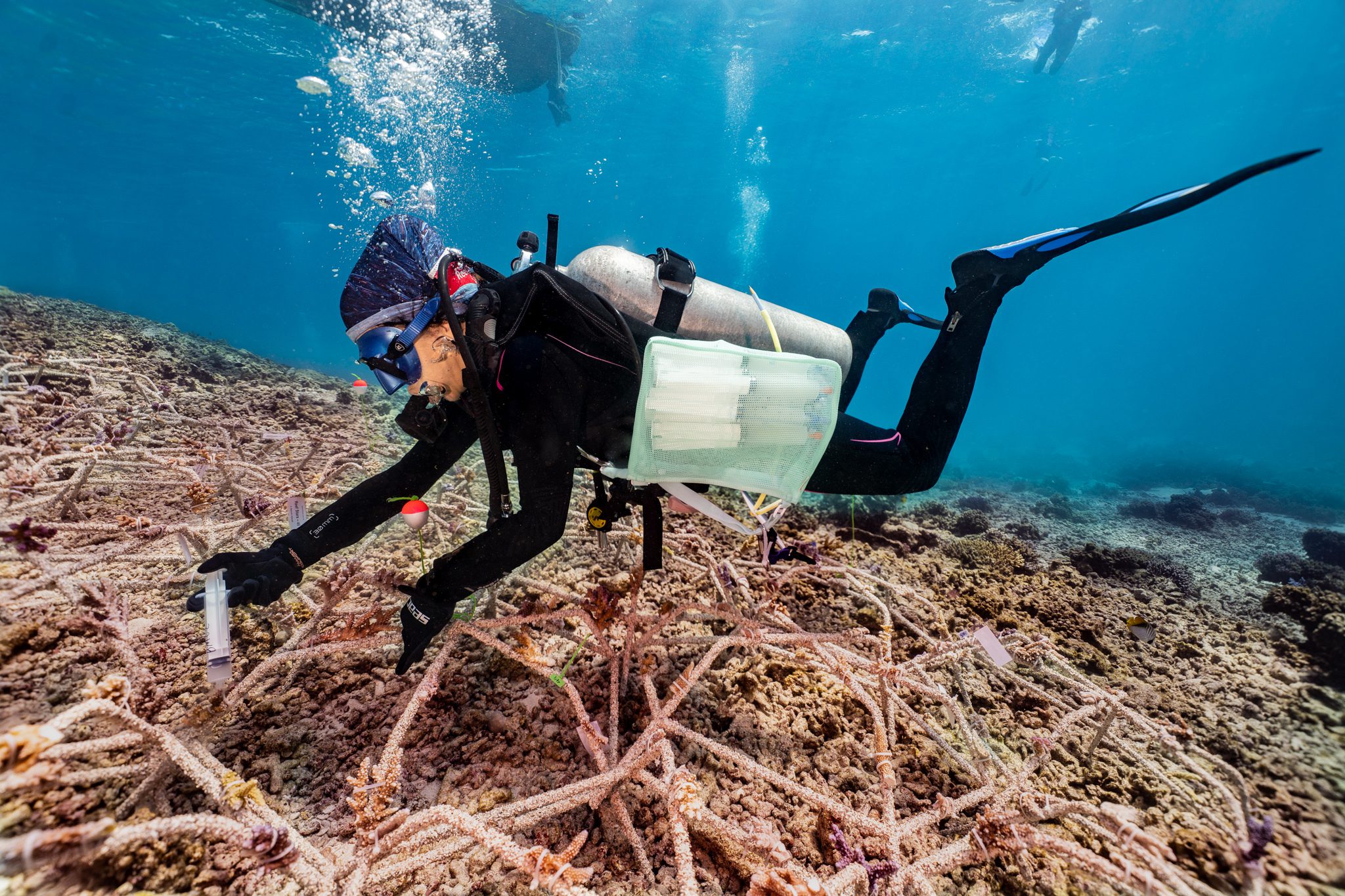
Coral Reef Awareness Week: Red Sea Reef Stars
Mars and KAUST collaborate to pioneer Coral Reef Restoration in Saudi Arabia
This March, the Mars Sustainable Solutions (MSS) team, including David Smith, chief scientist and Noel Janetski, ventured to the Middle East to expand Mars’ restoration efforts, introducing the MARRS method for the first time to the reefs of Saudi Arabia.
Partnering with the Marine Microbiomes Laboratory from King Abdullah University of Science and Technology (KAUST) in close collaboration with Professor Raquel Pexioto, and Professor David Suggett, chief scientist for the KAUST Coral Restoration Initiative (KCRI), the restoration team set out to install the first Reef Stars in the Red Sea- a region of immense importance for the future of coral reefs In another first, the team piloted the use of coral probiotics, in conjunction with Reef Stars, to enhance the thermal resilience of restored corals.
During the visit, three members of the KAUST team were trained in Reef Star fabrication and installation. As part of their training, the team set out to install 88 Reef Stars on a coral rubble slope within the RSRC Coral Probiotic Village during their first restoration build and a further 62 reef stars on build two. In total, 150 Reef Stars were deployed across these sites, outplanting over 2,250 coral fragments, taken from local coral nurseries or previously identified parental colonies.
Of the >2,000 coral fragments outplanted, 90 of these were involved in an additional study conducted by the KAUST team. These 90 coral fragments were treated with coral probiotics that have been shown to provide coral with a greater ability to resist thermal stress. The use of coral probiotics is a relatively new approach to equip restored coral reefs with increased resilience, so we’re excited to watch this space as we continue to develop the coral restoration toolbox.
Over the coming year, the team at KAUST, led by Professor Raquel Pexioto, will carefully monitor the performance of the Reef Stars, alongside the probiotic treated and non-treated coral fragments.

So, what is next for the restoration in Saudi Arabia?
This July, the MSS team return to Saudi Arabia to visit the Northern Red Sea, in support of the KAUST Coral Restoration Initiative (KCRI) who, in partnership with NEOM are implementing the world’s largest, multi-approach, reef restoration project at Shushah Island.
Additionally, we hope to continue to build this partnership and answer critical research questions in an upcoming scientific workshop at Mars’ longest-standing coral restoration site in Spermonde, Indonesia. The workshop will focus on ‘Coral Reef Restoration in a Changing World’ and will explore how to incorporate coral resilience and resistance to climate change within scalable and practical community-led coral reef restoration projects. The team from KAUST will have the opportunity to dive on Hope Reef, witness the scalability of the MARRS approach and interact with the local restoration team.
The collaboration between MSS and KAUST marks a significant milestone in the field of coral reef restoration. By combining the innovative MARRS method, cutting-edge probiotic treatments, and multi-approach restoration strategies, this partnership is paving the way for more resilient and sustainable coral reef ecosystems in Saudi Arabia and beyond. Together, Mars and KAUST are not only restoring coral reefs but also building a foundation for future conservation efforts that can adapt to the challenges of a changing world.


